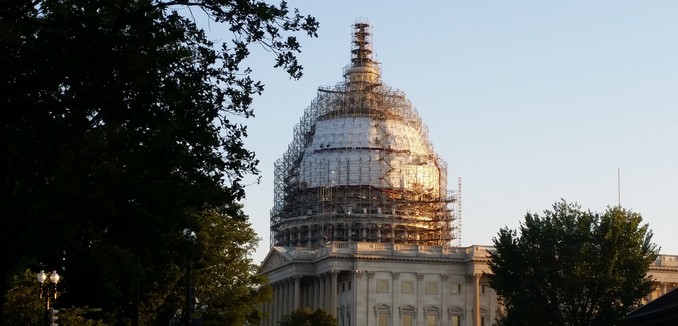There has been continued talk of a possible Democratic filibuster of the vote on the Iran deal as the congressional recess comes to an end. A filibuster would go against the spirit of the Corkin-Cardin bill, formally known as the Iran Nuclear Agreement Review Act of 2015, which passed the Senate 98-1 in May and called for a congressional review of the Iran deal. Several senators, including Democrats, gave statements expressing the importance of the bill. Sen. Ben Cardin (D-Md.), upon its passage, stated, “On such a serious national security matter that must halt Iran’s nuclear weapons program, Congress has a responsibility to fulfill its oversight obligations, to dispense with political divisions and to unite around a common purpose.” Sen. Tim Kaine (D-Va.) was quoted as saying, “It’s important that the president be able to fully exercise his Article II powers but just as important for Congress to exercise its Article I powers.” Sen. Richard Blumenthal (D-Conn.) issued a press release stating, “This bill gives Congress an appropriate and important role in reviewing and scrutinizing any final diplomatic agreement.”
Richard A. Arenberg, who worked for three Democratic Congressmen for a period of over three decades and has written a book defending the use of the filibuster, criticized the threat of a filibuster in this particular instance in an article for The Hill on Tuesday. Arenberg wrote, “I am struck by the irony of the president hanging his hat on a Senate filibuster. Earlier this year President Obama argued that the use of the filibuster in the Senate ‘almost ensures greater gridlock and less clarity in terms of the positions of the parties…There’s nothing in the Constitution that requires it.’” On Sunday, Sen. Bob Corker (R-Tenn.) told the Associated Press, “All but one senator voted in favor of having the right to vote on the final deal, so then to turn right around and filibuster it to me is very inconsistent and I think would be confusing to the people they represent.”
An analysis published yesterday in The Tower noted that “[t]he same people who promised to give Congress a voice are now going to filibuster to prevent a debate,” and concluded that a filibuster would weaken the political underpinnings of the Joint Comprehensive Plan of Action:
Regardless of whether there’s a filibuster on the Iran deal, the administration has lost the political battle, and will be implementing it against the majority of the nation’s elected representatives. If President Obama insists on doing it via filibuster, he risks undermining the little sense of legitimacy the deal has left. And it will not be long before he is anyway forced to veto a string of new congressional actions aimed at undercutting its implementation, and laying the groundwork for the next president to ensure it’s never implemented in full.
[Photo: soccerdhg / Flickr ]




